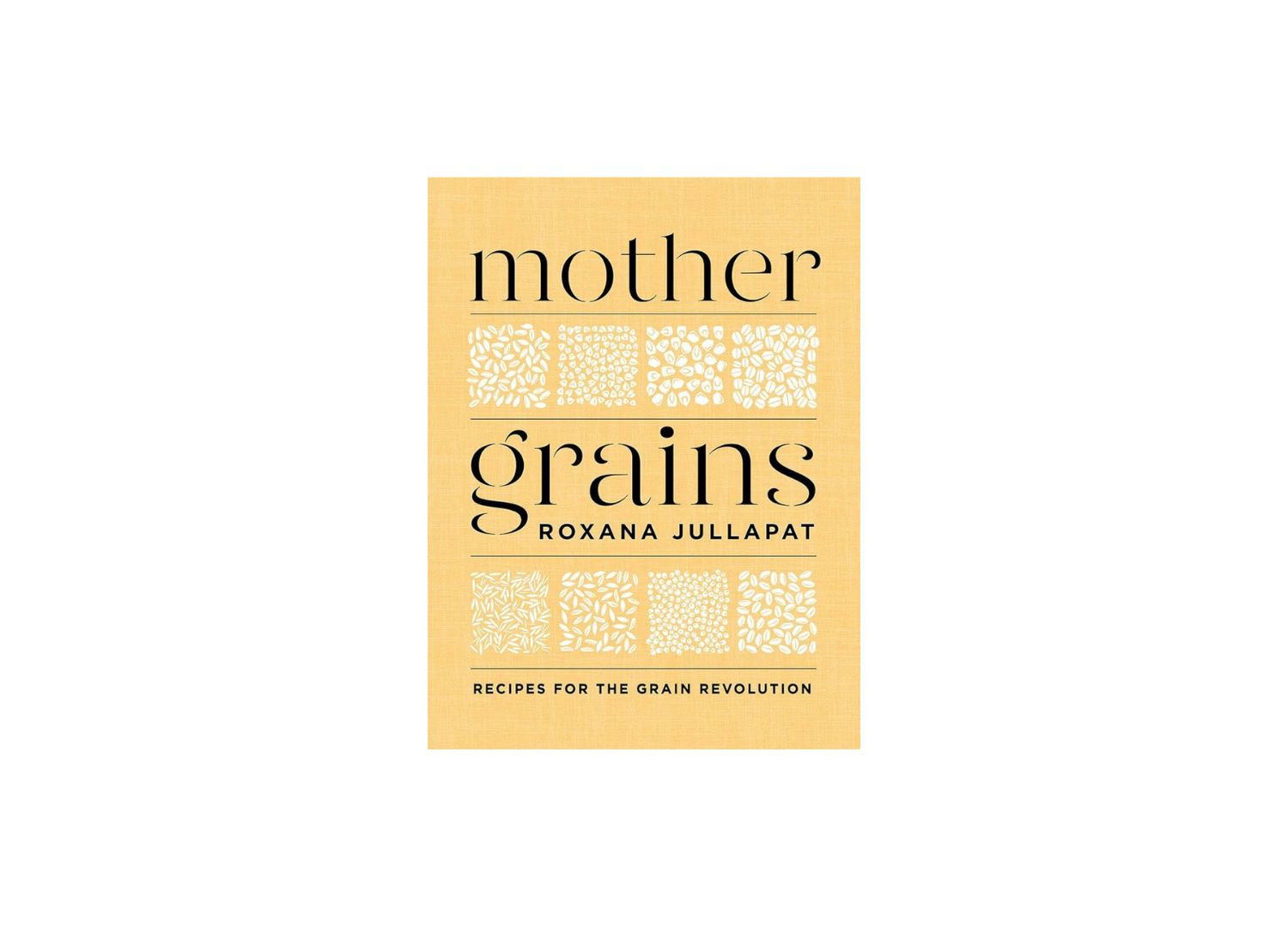
Roxana Jullapat is the author of Mother Grains: Recipes for the Grain Revolution and owner of Friends and Family Bakery in Los Angeles.

Alicia: Hi, Roxana. Thank you so much for taking the time today to chat.
Roxana: Hi, Alicia. Thank you so much for inviting me.
Alicia: Can you tell me about where you grew up and what you ate?
Roxana: So I was born here in the States, in California, to be more precise. But I actually moved to Costa Rica, where my dad was from, when I was just two. So my foods were just the foods of any typical Latin American kid, starting with tons of tortillas made with nixtamalized corn, of course. Tamales, tropical fruits like the ones you probably eat every day. And we actually start drinking coffee at an early age also.
And then, of course, normal kids stuff, like, a spaghetti with tomato sauce and rotisserie chicken and all the things that kids like. But for sure, there were a lot more vegetables than you would imagine because there's just that access to produce everywhere year round.
Alicia: And what was it about bread and pastry that drew you into working with them?
Roxana: When I decided to take a break from schooling, after I got my bachelor's degree, and before I commit—I was supposed to go to grad school. I was like, ‘Ok, let's do something manual. I need to use my hands and not study all day.’
And I went to cooking school, and I thought I was just gonna cook like any normal cook. At the time, I was vegetarian. And I had a real hard time in cooking school working with animal products. Really, really tough. I'm like, ‘Wow, this is so much blood.’
I remember having my first bite of steak that I had in a long, long time, like years probably, in cooking school. And so, bread and pastries seem so natural, right? These are ingredients that I’m not defensive about, ingredients that I use all the time even though there's a lot of dairy. But I was a vegetarian.
And also my family, starting with my great-grandmother and my mom even, there's a lot of baking. So it didn't sound foreign. There were a lot of terms in Spanish and in French, which I was familiar with. So it seemed very approachable.
Plus, by the time I graduated cooking school, having gone through the entire program, including all the savory food and all kinds of butchery and charcuterie, I was getting all these jobs in small restaurants. And I had been sent to the pastry station to plate desserts or make garnishes, etc. So I was like, ‘Ok, I guess this is it.’
And if once you know you like it, and you're kind of good at it. I found a really good job, which was working under Nancy Silverton. I was like, ‘Ok, let's go work at a great place that does this really well.’
Alicia: Well, what made you vegetarian and what made you stop being vegetarian?
Roxana: I was always not very—as a child, I was not super into meat. I thought it was really chewy and really hard and you needed a knife. And the flavors were really, really strong. Also I'm sure you're familiar outside of the United States, beef tends to be grass-fed rather than grain-fed, and it's not always confined so the texture and the flavor of the meat is very different. It's very forward, very meaty, very beefy. Almost barnyard. So I felt that was a—really hard for me as a child.
I don't know what my parents were thinking. There were instances when we were very young. And in September we'd go pick the pig that we would sacrifice for Christmas. So, we’d go to a farm outside of San José, the capitol, and go visit the pig farmer and say, ‘Ok, this is ours.’ I mean, that's so cruel. Come Christmas, you don't want to touch that ham. So, I definitely felt like I couldn't separate the face of that animal with the meat on my plate.
When I was allowed to say what I wanted to eat, in a family of five kids, you're—there's no menu to choose from. You eat what's in front of you. Once I had more freedom to say ‘I would rather eat this,’ I was a vegetarian.
Alicia: And are you still vegetarian or no?
Roxana: I am very vegetarian-heavy in my house. I mean, we seldom purchase meat or fish. I mean, I think we have a can of tuna in the house, maybe in the pantry. So even though my husband is a chef, and we work in a restaurant that serves an omnivore diet, and we go to restaurants where we might enjoy the gamut of foods available to us, we eat very vegetarian, if not vegan-ish in my house.
Alicia: Oh, nice. Awesome.
And I wanted to ask also how you developed your specific style of baking. You mentioned working under Nancy Silverton. You went to one of these—this really grand dame of baking. And how did you emerge from that and develop yourself?
Roxana: I think that the one thing that I felt very attracted to working in California, but also having come from a seasonal place, [where you] use what's available in front of you; there's not a huge amount of imports. I always found it very compelling and appealing to just go with that flow. Follow that seasonal rhythm. And that's what Campanile did so great, and why it was so important to me to work at a place like that.
I'm very tomboyish in my baking, so I'm not into very intricate or meticulous technique. I want things to feel handmade and small batch–y. And that the ingredients are identifiable, that they didn't come in a jar or that they were in vacuum seal. I just want to feel that the process is more organic. It just unfolds unto itself, and you coax the ingredients just to do their thing rather than impose on them your vision of the world.
Alicia: Yeah. [Laughs.]
Well, you just had a book come out called Mother Grains. What was the process like—because I'm struggling to write a book right now—of being in a bakery and writing a book? What was your process for writing it, and how did you find that time?
Roxana: It’s really funny, interesting, and dramatic, you know? And I'm sure you feel all of those things, because when we—by the time my agent and I sat down and said, ‘Ok, this is a book proposal,’ I had a table of contents with a vast number of recipes.
Now, these recipes are probably—were in a large format. This is for a bakery that makes more than a couple dozen at a time. So the first and the most challenging thing, when to just to downscale all those things. And then you think that you're explaining things very well until people say like, ‘What is ‘Add water to wet sand?’’ That doesn't sound that clear after all.
So, I would say that it took me a while to figure it out. And if I were to write another cookbook, I would do this process, which is we work—I work every day. I'm on the schedule; I work a station. I managed one of the ovens, or today, for example, I'm doing all the lamination for tomorrow.
And I don't want to stop doing that.
So I want to come in, do my work at three in the morning, whenever it is, and then spend one to two hours testing recipes or looking at them, getting familiarized with them. If it's downscaling, do that. Which is what I did last year, only I was disorganized about it. And then you take one day to write, and that's the day that you're in your house with your cat, pot of coffee, and just go for it.
Impossible. Impossible. And I've seen I work with people that have done this, and I have no idea how they do it, but it’s impossible to just go, ‘Ok, I have an hour left. Let's go write.’ Ah-ah, that's not gonna happen. That’s not how it works. But I remember when Suzanne Goin was writing the Lucques cookbook. That's how she did it. She would be in between orders, go punch in a recipe.
But yeah, it's incredibly challenging. Your entire staff is involved in the process. I was lucky enough to have journalists and English majors among my staff. I even have a—had a biologist. So I had a lot of resources. And then eventually, you're gonna have to—I don't know if this is for you also, but I did have to look for help. Look to those professional recipe testers and copy editors and have them help you out, because it takes a village.
Become a Member
You'll get full access to every post, events, and the TOMATO TOMATO Discord community, as well as my recipe archive.
Join Us
